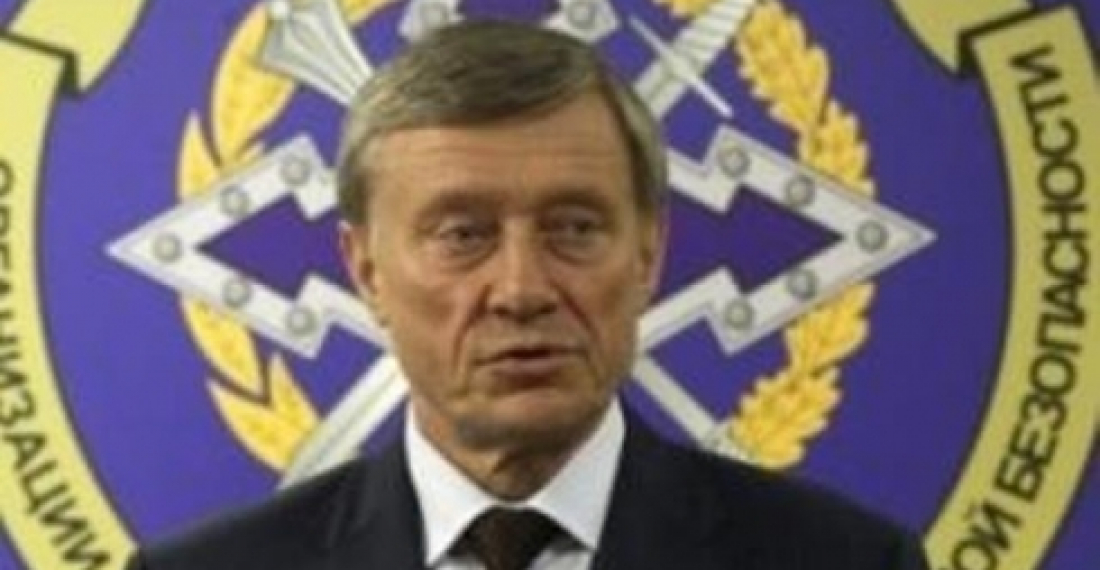The Collective Security Treaty Organization (CSTO) has decided to suspend efforts aimed at establishing dialogue with NATO. CSTO Secretary-General Bordyuzha on Thursday told the organisation's parliamentary assembly the decision was made in view of what he described as "unconstructive and very often openly hostile initiatives by the EU and NATO towards Russia and the CSTO."
He declared that the CSTO would follow a policy of further expansion of cooperation with the OSCE and also take steps to bolster cooperation with the Shanghai Cooperation Organization, China, Iran, and the countries of Latin America and the Caribbean.
The CSTO includes Russia, Belarus, Kazakhstan, Armenia, Kyrgyzstan and Tajikistan. Armenia is a member of NATO's Partnership for peace. The Armenian president attended the recent summit of NATO in Wales. It is not clear how this new CSTO policy will impact Armenia's relations with NATO.
source: commonspace.eu with Itar-Tass.
photo: The Secretary General of the CSTO Nikolai Bordyuzha (archive picture).







